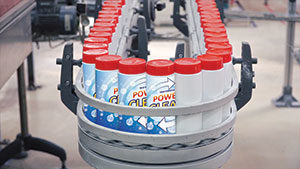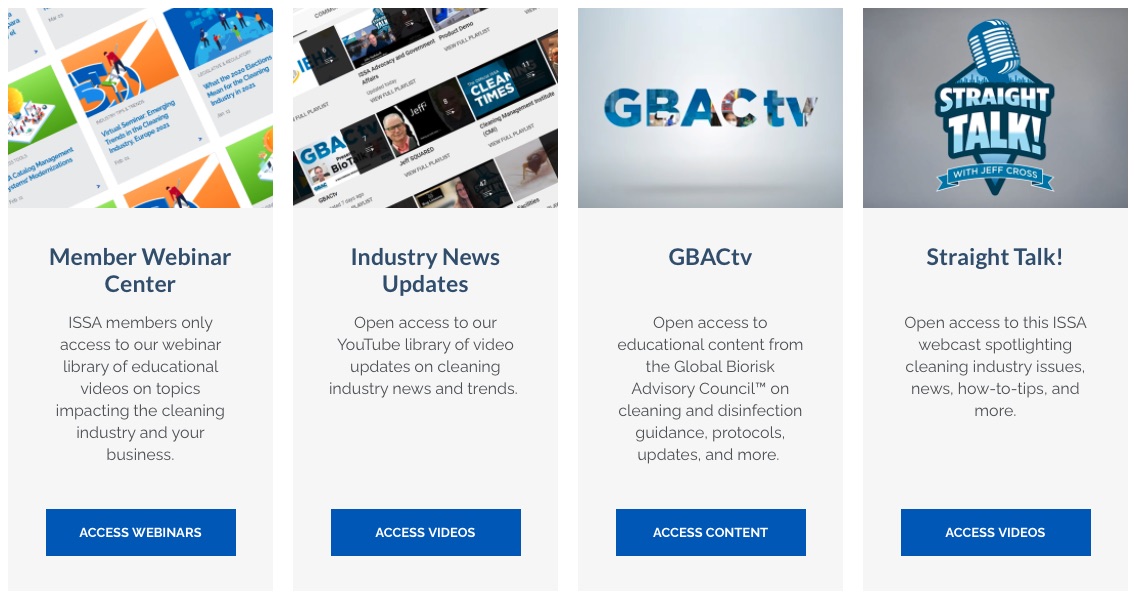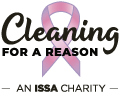Articles
Uncovering the Truth About Private Label
Categories: Cleaning Best Practices, Distribution & Supply Chain, Innovations, Trends & Technology
By Gretchen Roufs | January 21, 2019 << Back to Articles
Sales growth of private-label products was more than three times the rate of branded products in 2017, according to the Nielson Co. in its study of consumer goods. Nielson also said, “Retailer-branded, private-label products have surmounted stigmas of value and quality. In the last year, we’ve seen a complete reversal in growth trajectory compared to manufacturer branded items.”
Meanwhile, an informal survey of private-label manufacturers at ISSA Show North America 2018 showed the private-label business in the cleaning industry is growing.
Could the surge in private-label products be the trend du jour?
Private Label vs. Private Brand
To be clear, private-label products are products manufactured by one company that is labeled under another company’s name. But is it “private label” or “private brand?” Some use the terms interchangeably. Others make a very definite distinction.
“If you say ‘private label,’ it means you put a label on something. ‘Private brand’ means that you create the whole marketing package,” said Steve Lewis, president of Golden Star, Inc., a manufacturer of mops and other cleaning textiles. “We manufacture both private-label and private-brand products because some customers prefer to produce their own marketing collateral.” The majority of Golden Star’s business is private brand.
Nyco Products Co. President and CEO Bob Stahurski is a firm believer in the private brand approach. The company manufacturers more than 450 formulations, mostly liquids, and 25 to 30 percent of the product mix is Nyco brand. “We prefer to work with companies that are focused on their private brand,” he said. “A company that can articulate its brand value, brand strategy, and brand promise does better than a company that just wants its name on something. The executive team’s commitment to private branding has to be there for a company to be successful with it.”
To make a private brand work, the consultative selling process is critical, according to Stahurski. “If the only things that are important are price and supply, a customer can place the orders for those products on their cell phone.”
Disrupters
Stahurski lists several disruptors in the industry: “There’s the B-to-B e-commerce trend. And then there are the tertiary players — such as the office products businesses — that are taking market share. These disruptions will be more pronounced if the distribution model is unable to keep up with the changes in the market.”
One of the ways both distributors and suppliers are bracing themselves against disruptors is with private-label products. Distributors position against national brands with their own private-label products. Manufacturers have a number of options, including manufacturing private-label products for online merchants, even disruptors like Amazon.
According to Scott Jarden, president of The Bullen Companies, Inc., a craft blender of more than 4,000 different specialty cleaning products, “We’re not worried about Amazon. They come to us with requests. And we sell via Amazon ourselves. We sell at suggested resale price, one bottle at a time. As a manufacturer, we have to diversify ourselves and reach out to different customer bases. Because of these changes in the marketplace, we can’t live and die by jansan.”
In the floor pad arena, according to Rick Mazzoli, vice president of operations for ACS Industries, Inc., a manufacturer of floor and hand pads, Amazon has tried to engage in the floor pad business, but hasn’t yet been successful. Mazzoli believes it’s because there’s a technical aspect to floor pads. “Amazon could have an impact on our market down the road, but we’re not seeing it yet,” Mazzoli commented.
Golden Star’s Lewis believes the internet is changing buying patterns. “Millennials prefer internet purchasing as their preferred method of procurement,” he said. “Amazon is really driving this home.”
Stahurski, Jarden, and Chris Tricozzi, vice president for sales for Impact Products, LLC, a manufacturer of cleaning industry supplies and accessories, each mentioned consolidation is a disrupter — and worrisome. But Tricozzi was philosophical about it. “Our company believes that someone is always going to make products, and someone is always going to buy products,” he said. “How products get there is what will continue to change.”
Trends
“Private labeling has waves of popularity,” Jarden said. “People get lulled into the opinion that a national brand provides security, and then things change. And then they come back to their private-label brand.” Half of Jarden’s company’s production is in private brands, and a lot of the products are custom, coffee urn cleaner, for example.
Impact Products is seeing the demand for private-label products increase because of the “online retailers effect,” according to Tricozzi. “People like to have their own part numbers, cartons, and product labeling that you can’t scratch off, even though there was a time that people became skeptical about private label due to liability concerns,” he said. Impact started as a private-label business, and today, 20 to 25 percent of its business is private label.
Differentiation or Price Point?
Some think of private label as a price-point concept; others look to the Costco and Trader Joe’s products that people often feel are better than national brands. If you Google the Costco and Trader Joe’s brands, you’ll find multiple stories and examples that support this “better than” opinion.
Yet there are some distributors that use their private-label brand as something that is secondary to a national brand to allow them to come in with a low price on a “commodity” product.
“In some cases, price is a factor for distributors, so they bring in private brand for street-competitive pricing to capture bid business, contracts, et cetera,” Lewis said.
The other key motivator for many distributors, according to Lewis, is to get insulation against competitors, especially in bidding wars. He feels that private-label/private-brand mop sales will increase as a defense mechanism against margin erosion as well as a way for distributors to differentiate themselves in the marketplace.
Reasons to Private Label
Derek Wallace, vice president of sales for Claire, an aerosol manufacturer, maintains that in this day and age, people can find products and prices everywhere. “Private label can be a differentiator,” he said. “It promotes distributors’ own labels and brands. We think of private-label products as an annuity business for distributors. The margins are great, the growth rates are well above industry averages, and people who are trying to differentiate their businesses are inspired to do it with private branding.” Wallace says 75 percent of Claire’s business is private label.
Technology has also made private brands more accessible. “We now print labels in house, instead of silk screening, so the minimums for packaging and marketing purposes are smaller than they used to be,” Jarden said. When he started in this business, one-color silk screening was the norm. “Now we have the capacity to print beautiful multicolor labels in house. No more silk screening,” he said, smiling.
A private-label manufacturer also can be flexible. “We have the freedom to decide to manufacture one product for just one customer,” said Ailene Grego, president and CEO of American Formula, a manufacturer of commercial cleaning solutions. “We can make anything we want. We pay careful attention to the cues we get from our customers and listen to what they need, and what their pain points are.”
What’s up With National Brands?
Some say as long as you have a unique product in the market, or a patentable item, you wouldn’t private label it. One company (not interviewed for this article) apparently felt so strongly about this that it stopped all its private-label ventures and only produce nationally branded products.
Mazzoli says ACS is trending more toward its own national brand, especially for unique products, such as its patentable pads, Gorilla brand pads, and the pads with new technology — even though 60 to 70 percent of the company’s business is private label. “With the combination of ACS, ETC, and Treleoni, since last year’s ACS acquisition of Treleoni and ETC, we have a strong identity in the marketplace,” Mazzoli said. “We are linking our innovative products to our company name and brand.” He noted the bread-and-butter type pads — the reds, blacks, and whites — are where the private-label focus is. “Something that will never go away for us is our commitment to our distributors, to whom we say, ‘There’s a name on the industry’s best floor pads, and it’s yours.’”
About the Author.
Gretchen Roufs, APR, is a cleaning industry veteran and has attended 30 ISSA shows. She owns a marketing and public relations business and is based in San Antonio, TX. She can be reached at [email protected].





